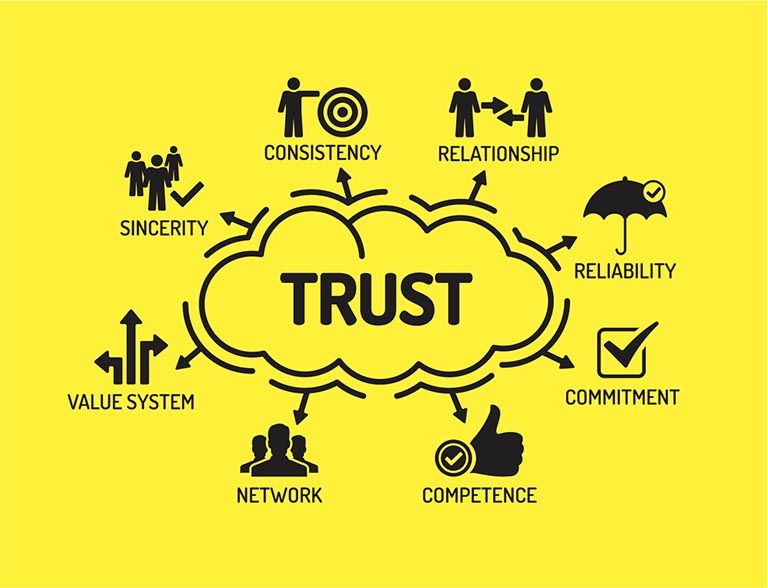Earning and Building Trust: A Fundamental Part of Leadership
Introduction
Building trust is one of the most fundamental aspects of leadership. As a leader, you will need to develop an informed and executable plan. Building trust is very important as it helps leaders attain more authority over their employees. Leaders need to understand that earning employee’s trust needs a lot of confidence and hard work. If a leader earns trust from his followers, it stimulates their commitment and devotion to their work. Besides, it helps in achieving team goals efficiently and adequately. Any leader must work on building trust in their employees to enhance their competency as leaders. It is not easy to gain support from employees where trust lacks and this can greatly affect the development, growth, and success of an organization. Building trust is not an overnight event (Jiang & Luo, 2018). It is a continuous process that requires leadership attributes such as openness, transparency, commitment, good communication, accountability as well as modeling activities that enhance trust.
Building trust with the staff will depend on how reliable your information and words are. For instance, some speak a lot and do not adhere to their words. To win staff’s trust, as a leader you need to be more open and free. There is transparency in free communication between leaders and staff (Yue, Men & Ferguson, 2019). It becomes more comfortable for the staff to trust those leaders who share openly and freely since it is easier to relate. Open and free communication helps leaders to express their interests in the goals and aspirations the staffs are focused on. Effective communication is important as it helps employees feel like to be part of the organization and earning their trust becomes easier (Jiang & Luo, 2018). As a leader who wants to earn employees’ trust, you need to practice open and free communication, as this will improve the communication between the two parties. It is from a strong relationship trust is earned or cultivated.
Leaders should always be approachable in modeling trust in their staff. Employees usually have different things that need clarification from the leaders. Employees tend to trust those leaders who are approachable as it is easy to make consultations and do not experience any difficulties approaching them (Reagan, 2004). Talks always stimulate interactions between leaders and employees and play an important role in promoting employees’ trust. Besides, modeling trust in employees needs the leader to demonstrate support to employees in all situations even when they make mistakes. Supporting employees on such occasions is important in earning their trust. Besides, it increases employees’ confidence, which in turn enhances their outcomes. As a leader, you must be genuine. For instance, you must lead as an example. Employees will trust you if they know that you as a leader you are committed. Leaders must be good listeners. A leader who understands and listens to their employees will have more ease earning trust from their employees. By constantly talking to them and requesting them to open up their issues and concerns, it makes them feel that they are part of the team.
Leaders must show commitment in their leadership roles to gain employees’ trust. Commitment indicates that leaders are focused on the objectives and goals of the organization, similar to those of the staff. Besides, it shows that they are headed in the same direction, same interests, and work together. Commitment is shown when leaders work closely with the employee. This also helps in building employee’s confidence. In addition, leaders should appreciate the employees’ confidence and encourage them to increase their productivity. This is a better way of demonstrating a commitment to leadership duties.
Building accountability is an essential model for earning trust. Employees view leaders as credible individuals whenever they acknowledge success as well as mistakes. Besides executing accountability actions, it can also be promoted by engaging the employees in an accountability process and honest dialogues. A leader can facilitate accountability through measures such as status reports, agenda tracking, and evaluation processes. The organization’s culture influences the long-term behavior of the employees (Reagan, 2004). Accountability is closely linked to ethics. For instance, trust and integrity are earned when leaders demonstrate a high degree of ethical behavior.
Engaging in activities that build trust will also play an important role in earning trust from staff. Encouraging teamwork and collaboration is one of the essential activities. This ensures that all employees are given participation opportunities based on equality. Leaders, therefore, need to avoid the blame philosophy or discrimination that entails exposing an individual’s mistakes. Leaders must observe confidentiality and should also be sensitive to such matters. This will play an important role in helping those employees who need help instead of sharing their weaknesses and shaming (Reagan, 2004). Collaboration helps the employees understand that making mistakes offers room for improvement (Phong, Hui & Son, 2018). Valuing and appreciating employees in the growth and development of the organization rather than valuing the output helps in earning their trust.
Conclusion
In conclusion, trust is an essential virtue that a very successful leader should have. Strong collaboration and teamwork in the workplace environment help in winning employees’’ trust. However, building trust is a procedural process that needs hard work. The important aspects of building trust include free and open communication, transparency and honesty leadership, accountability, and ensuring confidentiality. Even though creating a culture based on such qualities takes a lot of time, ruining trust takes minutes.







